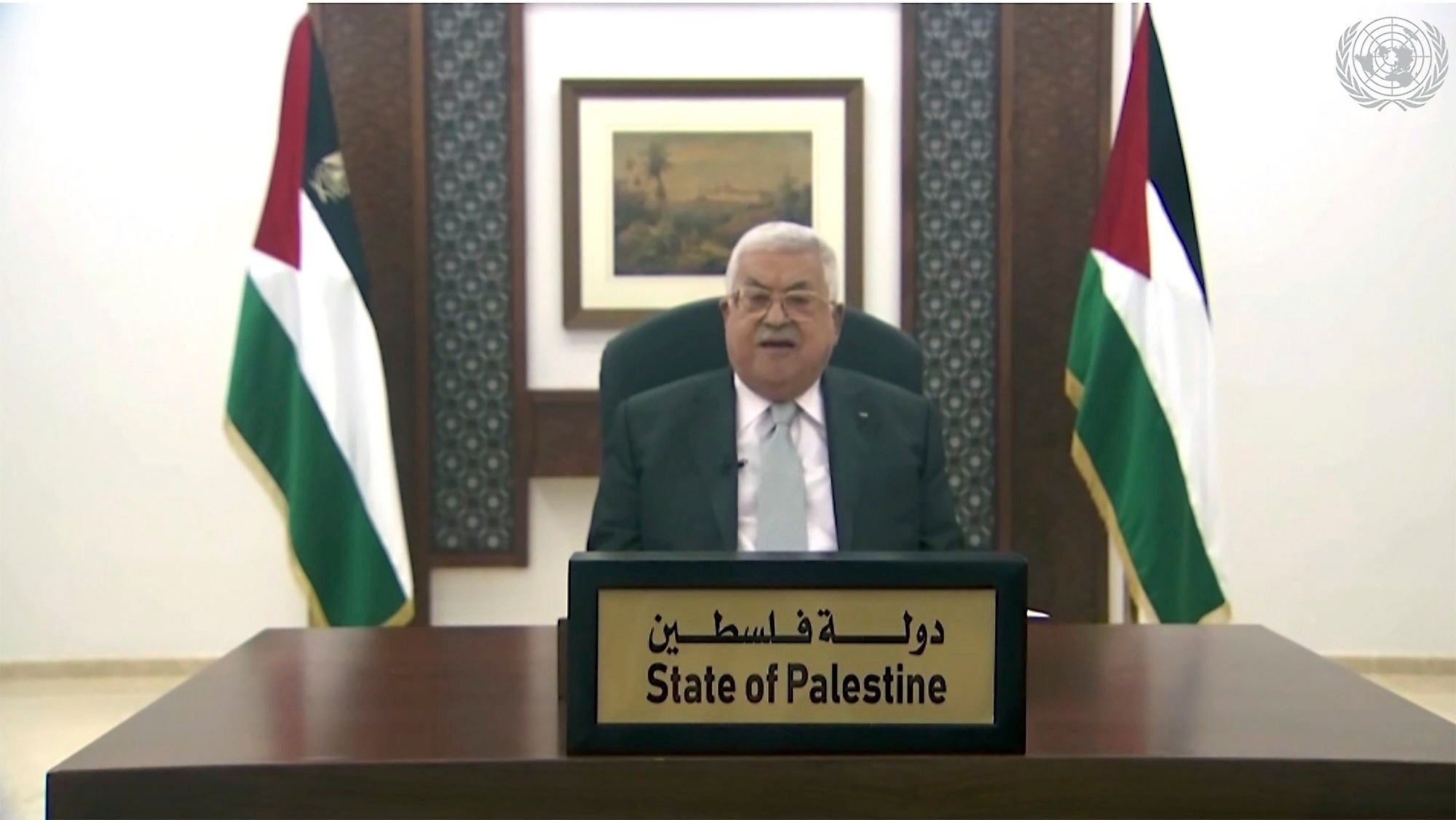Palestinian leader calls for new peace process in UN speech
Palestinian President Mahmoud Abbas has called for an international conference early next year to “launch a genuine peace process” while criticizing the recent decision of two Arab countries to normalize relations with Israel

Your support helps us to tell the story
From reproductive rights to climate change to Big Tech, The Independent is on the ground when the story is developing. Whether it's investigating the financials of Elon Musk's pro-Trump PAC or producing our latest documentary, 'The A Word', which shines a light on the American women fighting for reproductive rights, we know how important it is to parse out the facts from the messaging.
At such a critical moment in US history, we need reporters on the ground. Your donation allows us to keep sending journalists to speak to both sides of the story.
The Independent is trusted by Americans across the entire political spectrum. And unlike many other quality news outlets, we choose not to lock Americans out of our reporting and analysis with paywalls. We believe quality journalism should be available to everyone, paid for by those who can afford it.
Your support makes all the difference.Palestinian President Mahmoud Abbas on Friday called for an international conference early next year to “launch a genuine peace process” while criticizing the recent decision of two Arab countries to normalize relations with Israel.
Abbas seemed to acknowledge the growing international weariness with the decades-old conflict as he delivered the latest in a long series of addresses to the U.N. General Assembly.
“I wonder what more I can say after all I’ve said on countless occasions," he said in the video address from his headquarters in the West Bank city of Ramallah.
The Palestinians have rejected President Donald Trump’s proposal to end the conflict, which overwhelmingly favors Israel, and have officially cut off contacts with both the U.S. and Israel. Arguing that Washington is no longer an honest broker, they have called for a multilateral peace process based on U.N. resolutions and past agreements.
They have also rejected the decision of the United Arab Emirates and Bahrain to normalize ties with Israel, viewing it as a betrayal of the longstanding Arab consensus that recognition of Israel should only come in exchange for territorial concessions.
In his speech, Abbas said the agreements, signed at the White House earlier this month, are a “violation” of the “principles of a just and lasting solution under international law.”
For more than three decades, the Palestinians have sought an independent state in the West Bank, Gaza and east Jerusalem, territories seized by Israel in the 1967 war. Israel withdrew from Gaza in 2005 but imposed a crippling blockade when the Palestinian militant group Hamas seized power from Abbas' forces in 2007.
There have been no substantive peace talks between Israel and the Palestinians since Israeli Prime Minister Benjamin Netanyahu was first elected more than a decade ago, and the two sides are fiercely divided over the core issues of the conflict.
Instead, Netanyahu has focused on building ties with Arab, African and Asian countries that have long supported the Palestinian cause. In Israel, the agreement with the United Arab Emirates, an oil-rich country with considerable regional influence, is seen as a historic breakthrough that could transform the Middle East.
Israel put on hold its plans to annex up to a third of the occupied West Bank following the deal with the UAE, while saying it still plans to eventually go through with them. The UAE said the agreement removed an immediate threat to the two-state solution and gave the region a window of opportunity.
The Palestinians insist that the core Middle East conflict will not be resolved until they realize their aspirations for independence.
“There can be no peace, no security, no stability, no coexistence in our region without an end to the occupation,” Abbas said, speaking behind a plaque that read “State of Palestine.”
“We will not bow down," he said. "We will not surrender. We will not compromise. And we shall triumph."